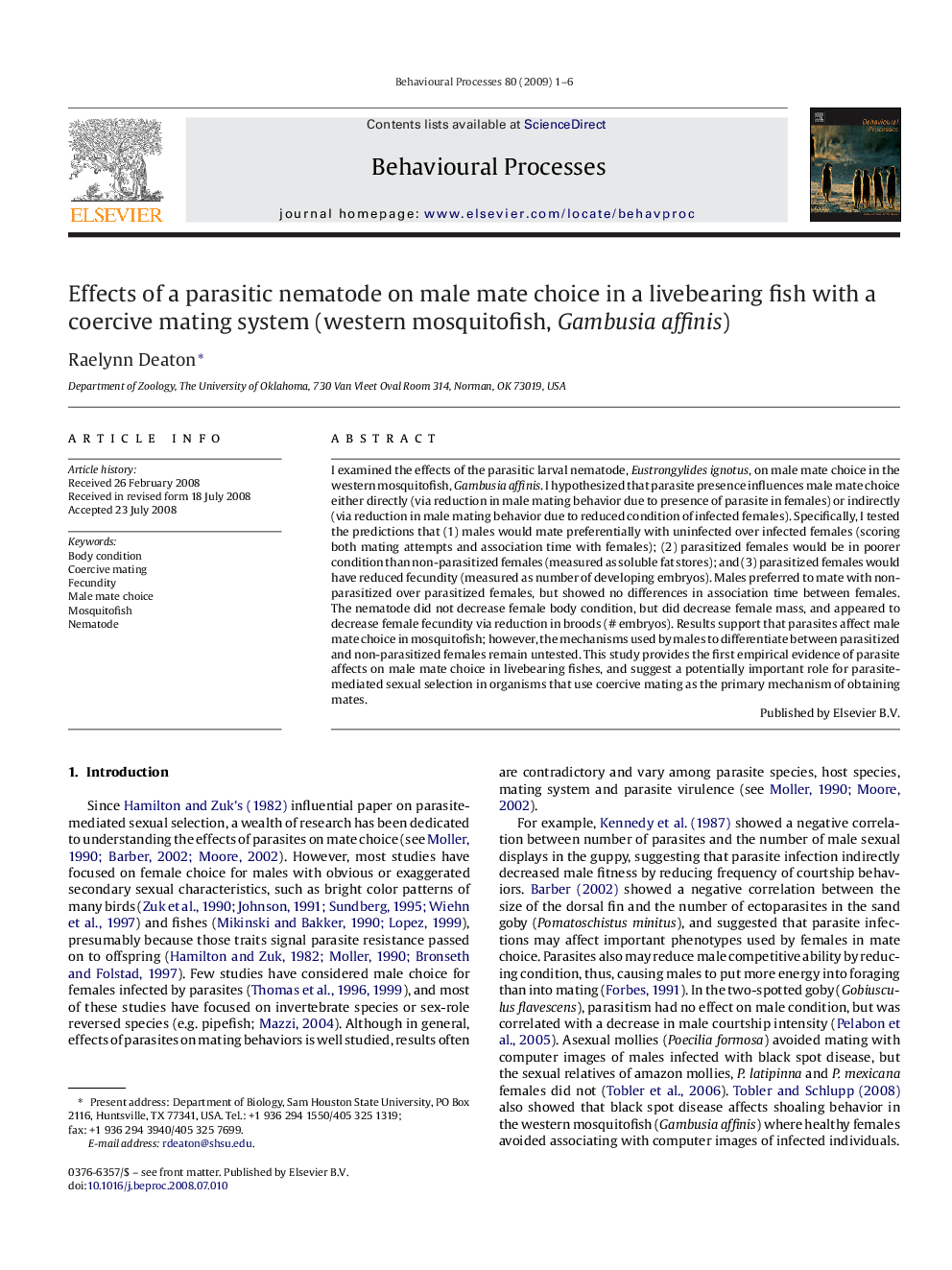| Article ID | Journal | Published Year | Pages | File Type |
|---|---|---|---|---|
| 2427566 | Behavioural Processes | 2009 | 6 Pages |
Abstract
I examined the effects of the parasitic larval nematode, Eustrongylides ignotus, on male mate choice in the western mosquitofish, Gambusia affinis. I hypothesized that parasite presence influences male mate choice either directly (via reduction in male mating behavior due to presence of parasite in females) or indirectly (via reduction in male mating behavior due to reduced condition of infected females). Specifically, I tested the predictions that (1) males would mate preferentially with uninfected over infected females (scoring both mating attempts and association time with females); (2) parasitized females would be in poorer condition than non-parasitized females (measured as soluble fat stores); and (3) parasitized females would have reduced fecundity (measured as number of developing embryos). Males preferred to mate with non-parasitized over parasitized females, but showed no differences in association time between females. The nematode did not decrease female body condition, but did decrease female mass, and appeared to decrease female fecundity via reduction in broods (# embryos). Results support that parasites affect male mate choice in mosquitofish; however, the mechanisms used by males to differentiate between parasitized and non-parasitized females remain untested. This study provides the first empirical evidence of parasite affects on male mate choice in livebearing fishes, and suggest a potentially important role for parasite-mediated sexual selection in organisms that use coercive mating as the primary mechanism of obtaining mates.
Related Topics
Life Sciences
Agricultural and Biological Sciences
Animal Science and Zoology
Authors
Raelynn Deaton,
